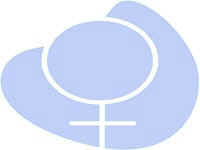|
World Social Forum 2007
Nairobi, Kenya
GENDER PLATFORM:
WOMEN'S VOICE WAS STRONG & CLEAR
|
By Zarina
Geloo
IPS TerraViva
NAIROBI - The
women’s movement had a stronger voice at Nairobi 2007 than in all
other forums and has made genuine attempts to link their issues into
other processes, Fatma Aloo, a member of the WSF organisation
committee, said Wednesday.
|
Aloo, who is also an executive board member of FEMNET, told a media briefing
that the African women’s voice was especially strong and clear at the forum.
"Unlike the other forums where our voice was drowned by the bigger and
stronger solidarity movements, here in Nairobi we were strong. We had
representation across the board, were able to link our issues into the other
processes such as land, water and health. And, more importantly, we
did not talk only to the converted – we engaged with other groups that had
not traditionally had a gender component in their work." "Enough Talk
Aloo", who is from Tanzania, said there had been enough talk and that it was
now time for action: "We must now move from NGOism to activism, we now
know what we want to do and how to do it. We must now move to action – to
doing it – and then come back and report our progress."
She said all movements and groups would leave Nairobi with an action plan
that should be implemented nationally and regionally.
Wahu Kaara from the social mobilisation unit of WSF 2007 said Kenyan
grassroots organisations had been invigorated.
"This is probably the only forum they will ever attend because it is on
their turf and they made maximum use of it. They put their case across very
clearly, they engaged with other solidarity movements and formed strong
networks which will spur them on long after the conference," said Kaara of
Women in Conflict. She said the discussions on women in conflict areas
– especially Somalia and Darfur – were poignant as many women affected by
the conflict were not physically present to tell their stories. However,
their issues were being raised by solidarity movements who were working in
those areas.
There was a strong call for more protection from the international community
for women and children living in conflict areas in order to shield them from
rape and other brutalities associated with war.
On the issue of access to land, there was a demand for legislation that
would protect women’s access to land, especially in cultures where women
were not allowed to own land or property.
The grassroots movements also lobbied for greater networking on the issue of
water, saying that many communities were accessing less water because
governments were privatising water resources and making it expensive.
http://www.ipsterraviva.net/tv/nairobi/en/default.asp
You
may use the photos, text and audio files,
citing FIRE - Feminist International Radio Endeavour as the source (www.radiofeminista.net)
HOME

|

